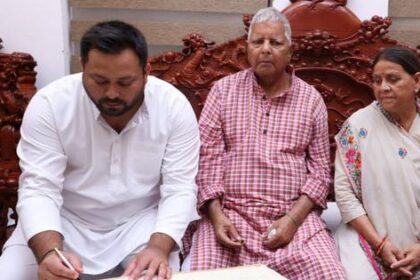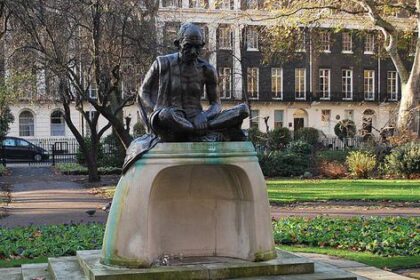Strong community protests lead to a meeting promise from Union Home Minister Amit Shah.
Members of the Kurmi community in Jharkhand decided to withdraw a railway blockade that had been initiated as part of their demand for Scheduled Tribe status. This development came after the Centre provided an assurance of a meeting with Union Home Minister Amit Shah to discuss their concerns. The protest was organized by the Adivasi Kurmi Samaj, an umbrella organization representing the Kurmi community, and it took place across West Bengal, Jharkhand, and Odisha on Saturday.
Sheetal Ohdar, a member of the Adivasi Kurmi Samaj and the central president of Kurmi Vikas Morcha, confirmed that an assurance had been received from Shah’s office regarding the meeting. However, the specific date for this meeting has yet to be scheduled. Ohdar noted, “In view of the development, we have decided to withdraw the agitation from all but two stations.” He indicated that the protest at the Sini railway station in Seraikela-Kharswan district would soon be called off, while the blockade at Pradhan Khanta in Dhanbad would continue until a date for the meeting is confirmed.
The history of the Kurmi community regarding their classification as Scheduled Tribes dates back to the 1931 Census when they were included among the communities recognized as such. However, in 1950, they were excluded from the Scheduled Tribes list. In a move to rectify this, the Jharkhand government recommended in 2004 that the Kurmi community be reinstated to the Scheduled Tribes list instead of being classified under Other Backward Classes.
The Adivasi Kurmi Samaj had called for an indefinite rail and road blockade, which began in various locations including West Bengal’s Jhargram, Banukra, Paschim Medinipur, and Purulia districts, as well as in parts of Jharkhand and Odisha. The protests aimed not only to secure Scheduled Tribe status but also sought the inclusion of the Kurmali language in the Eighth Schedule of the Constitution, which officially recognizes 22 languages in India.
On September 18, the Calcutta High Court labeled the rail and road blockade organized by the Kurmis as “illegal and unconstitutional.” While no rail blockades occurred in West Bengal due to heightened security, large groups of protestors in Jharkhand managed to occupy tracks at several stations, including Muri, Rai, and Tatisilwai in Ranchi district, as well as Barkakana in Ramgarh, Parasnath in Giridih, Charhi in Hazaribag, Pradhan Khanta in Dhanbad, Galudih in East Singhbhum, and Chandrpura in Bokaro district. These protests occurred despite prohibitory orders in place.
The protests had significant repercussions, leading to the cancellation, diversion, and short-termination of over 100 passenger trains on Saturday within the jurisdictions of the Ranchi division of South Eastern Railway and the Dhanbad division of East Central Railway. Officials confirmed the disruptions caused by the protests, highlighting the impact of the Kurmi community’s demands on regional transport.








